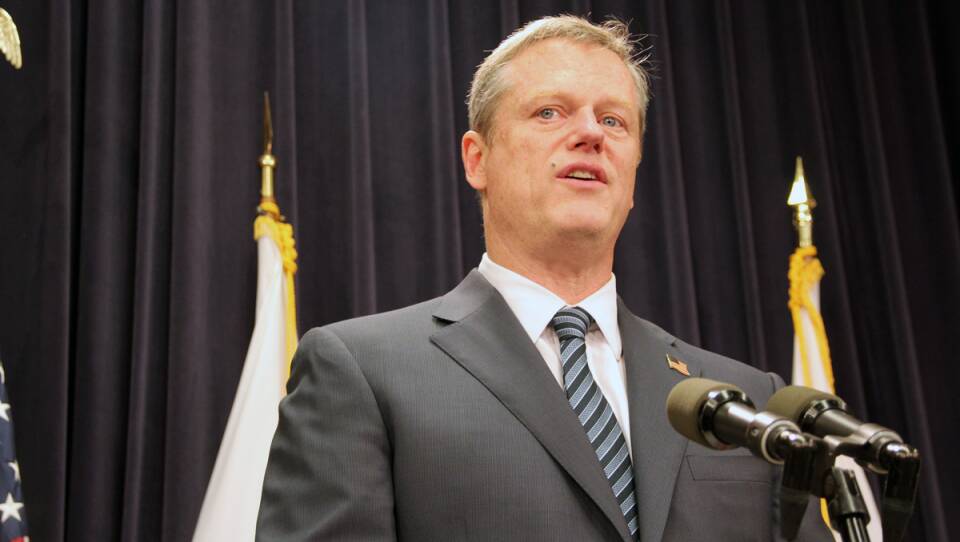A lot has changed in a week here in Massachusetts. Movie theaters, museums, bars, restaurants and music venues are shutting their doors in an effort to stem the spread of the coronavirus. Other states are taking similar precautions.
In the Bay Area in California, six counties have issued or are in the process of issuing shelter in place orders for all residents for the next three weeks. WGBH News' All Things Considered anchor Arun Rath spoke with Laura Klivans, a reporter with public radio station KQED in San Francisco, about what it’s like in the Bay Area right now. This transcript has been edited for clarity.
Arun Rath: Right now, you're talking to us from your home?
Laura Klivans: That's right. I'm in my apartment in San Francisco, and none of us are going into the studio at KQED. So what we're doing has been making our own little sound booth. So right now, I'm talking to you from under my own comforter and I'm looking at open laptop and I'm holding my own microphone to my face to do this recording.
Rath: That's something you might do out in the field or from a hotel room. But right now, your base of operations is your home?
Klivans: That's right. So today, I'm actually working on a story about people who are immunocompromised. And obviously, I'm not going to go and interview them in person. So what I'm doing is I'm connecting to them either through the phone or through facetime audio or Skype. And I'm just recording them remotely.
Rath: A lot of people are working from home in the Bay Area. Right?
Klivans: That's right. Yeah, it's pretty empty outside. Even last week when I was still going into the studio, when I took my normally crowded train where you're normally fighting for a seat, there were many seats to be had. It was a bit eerie to be downtown, which is normally really bustling, and have it be fairly empty.
Rath: Well, and what about the broader area? I know here in Massachusetts, Governor Charlie Baker recently banned gatherings of more than 25 people and essentially he's closed all bars and restaurants across the state until next month. Is that the same situation there in California?
Klivans: So as we've seen, probably similar to over there is our gatherings are now very minimal. We had our governor speak yesterday and he asked to close all bars and nonessential other places. So we're seeing public libraries, senior centers and rec centers closing. In Los Angeles, they're closing restaurants as well, except for pickup and takeout. That's not the case within the whole of the state. And then we're also having a lot of closures with schools, which I believe you are as well. So a third of our six million public school students are not in school today. And that's going to be for either a week or two up to five weeks. I mean, and of course, it could extend beyond that.
Rath: With this crisis, it's felt like partly, I think because of the federal response in some ways being inadequate, that people have been relying a lot more on our local institutions. I know what this feeling is like here in Massachusetts. How are things in California in terms of how do people feel in terms of their confidence in institutions and the mood generally?
Klivans: That’s a great question. I think from my perspective, there's been a rallying around supporting the measures that our mayor and our governor have set in place. It’s a huge inconvenience, obviously. For example, my child is here in this apartment with me and my husband right now. And we're taking turns taking care of him. And we're going to do it because his daycare is closed. And so I think that's just something that people are taking in stride, but also feel better to be safe than sorry. So it's not like people are out protesting and like, 'let's rebel and go to that bakery.' I'm not seeing anything like that. Our governor has had several press conferences and he comes on and he's very measured. And I think that is something calming that the public wants to see right now.
Rath: Is there anything you've seen, like in the last week that has made you think, oh, that is so California about the response?
Klivans: That would be great. I wish I could say, like, oh, everyone's giving away free weed to help people through it. But I have not seen that. I do want to say, Californians, despite some people who are freaking out, we have a lot of people are really trying to show up for one another. We're doing some pretty cool things that I hope other states are doing as well. And that is still providing food for the kids who need it. So if that's in a large district, maybe putting it at a few schools that are in good locations. Our public libraries have closed and they are becoming, at least in San Francisco, they're becoming childcare centers for people who are on the frontlines and still need to go to work. And so the people who work in hospitals largely and also people who qualify as low income. When I read that, I felt really emotional.
We have a huge homelessness problem here in California and in San Francisco. And our mayor has addressed that in part. The plans are that homeless folks who do test positive will be able to isolate in RV's. We have a several RV's rented, as well as vacant hotel rooms and vacant apartments. And then there's just organizing that's happening on websites like Facebook and Next Door. And that's pretty beautiful to see people saying, 'I'm going to go to the grocery store, are there any people who are elderly who don't want to go? Like, I am ready to get you food.'





